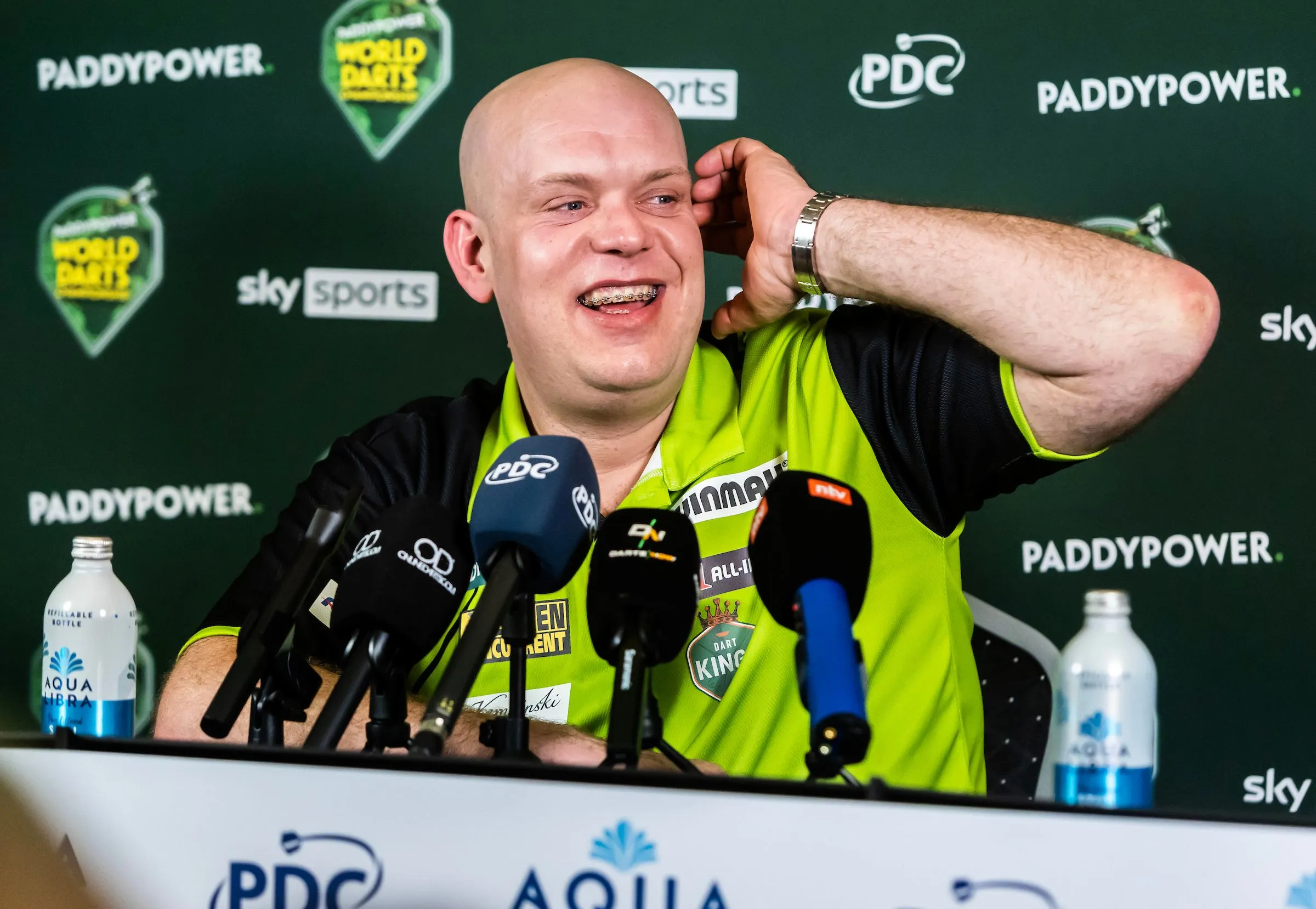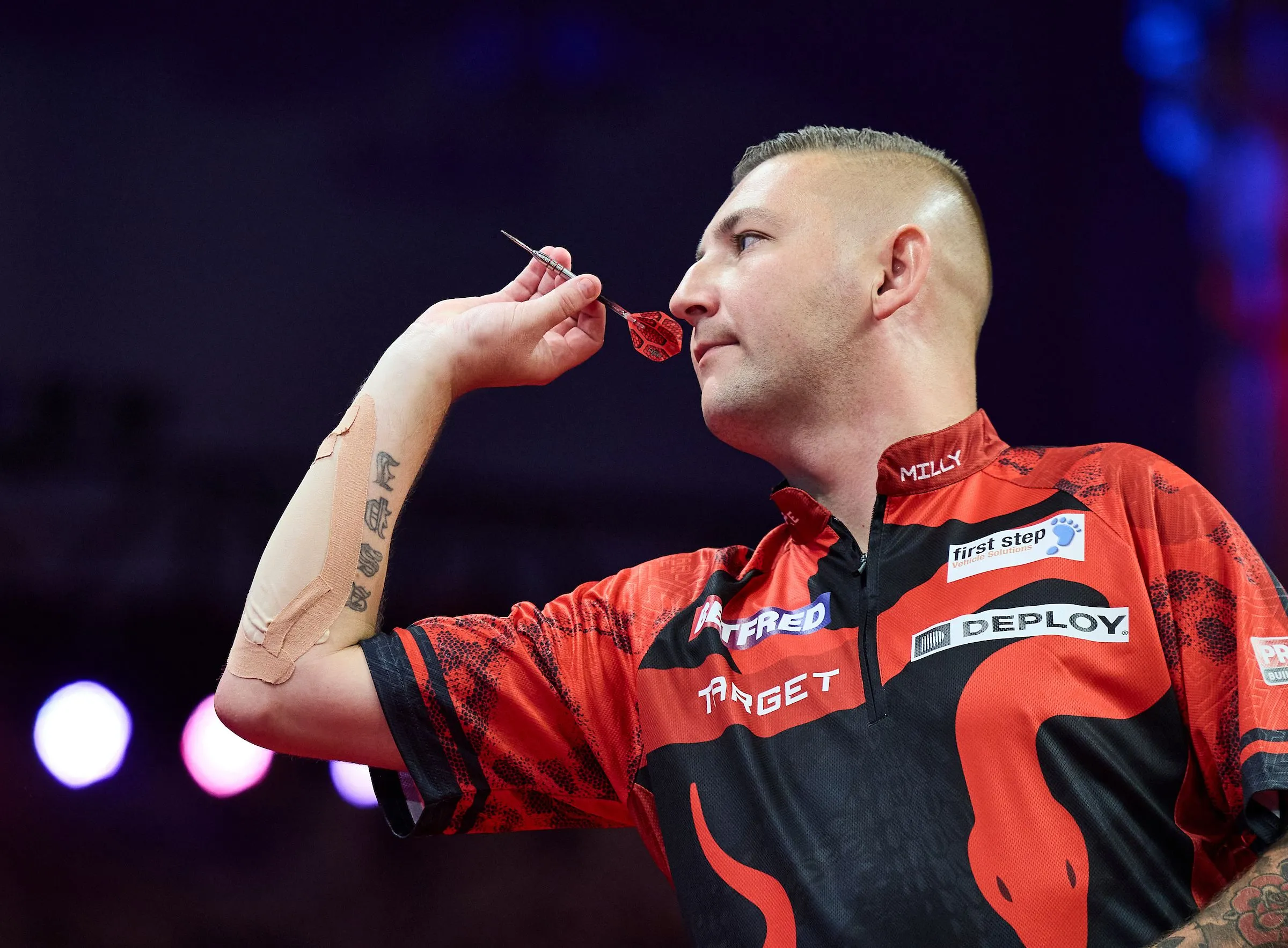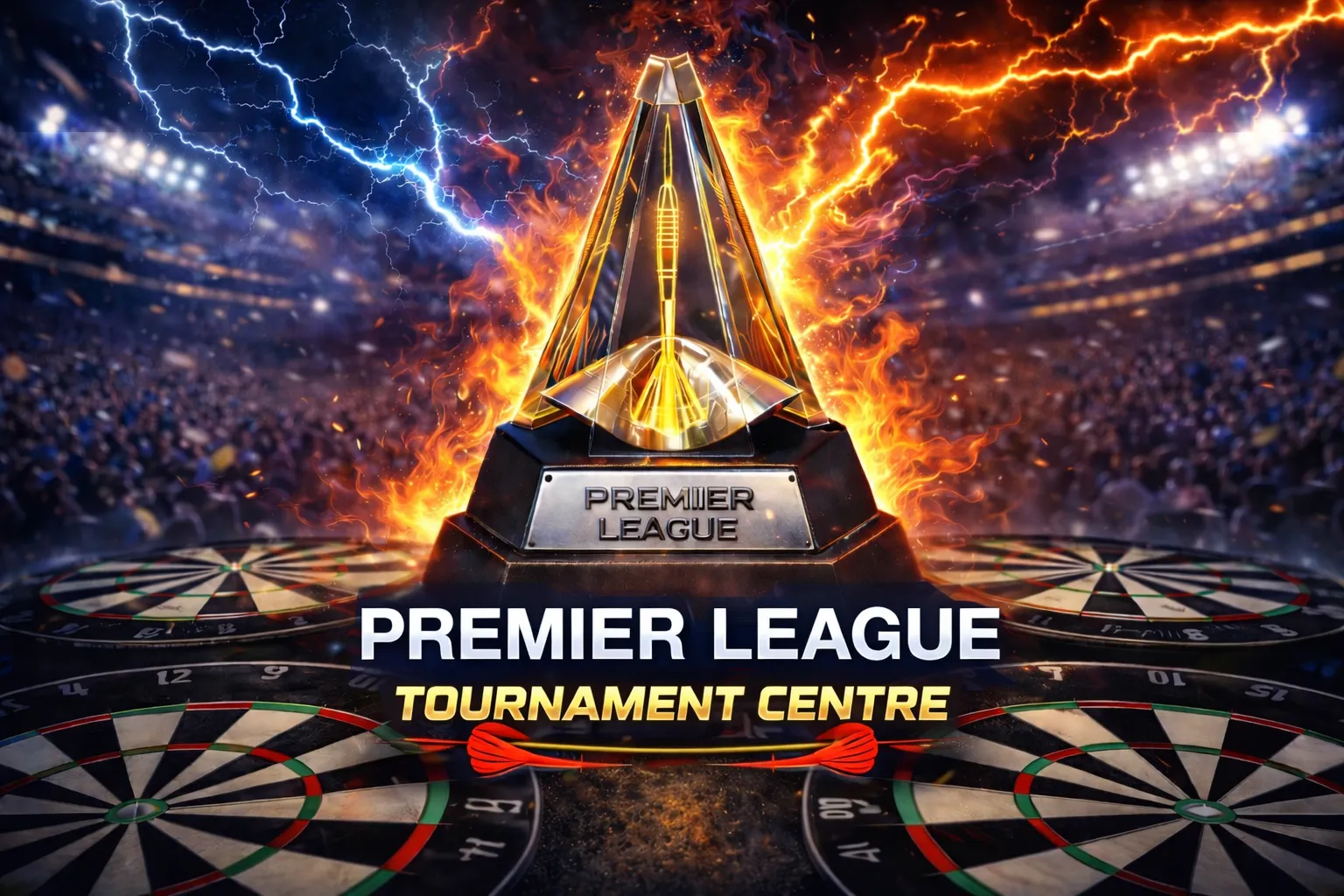Experts continue to be confused by dartitis: "We still don't understand enough to fully explain it"
PDCFriday, 03 January 2025 at 15:00

Dartitis remains a remarkable phenomenon within the sport, and it can affect even the biggest names. One current example is Nathan Aspinall, who regularly experiences issues in his throwing action, and has been open and honest about his battle with the mental block. Neurologist Erik van Wensum admits that there is still no solution to this potentially career-ending condition.
"We still don't understand enough to fully explain it," Van Wensum begins in conversation with the AD. The expert explains that the problem is related to the nervous system and brain, and it results in involuntary muscle contractions. However, Van Wensum does not expect big names such as Michael van Gerwen or Luke Littler, who play tonight's PDC World Darts Championship final against each other, to suddenly suffer from the condition. "Usually the problem reveals itself earlier," he said.
Read also
"It's extremely frustrating. Especially for athletes who so desperately want to make the most of their talent. Or even depend on it for their income," the doctor notes. This problem is not limited to the world of darts, however. Van Wensum has also treated athletes in the golf world.
Even 16-time world champion Phil Taylor indicated that he suffered from dartitis symptoms early in his career. Nevertheless, according to Van Wensum, there is still no conclusive explanation for the condition. "But there are patterns we do see. It often involves professional or fanatical amateur athletes who endlessly practice the same move. And put the necessary pressure on themselves in the process. With those repetitions, an athlete hopes to approach perfection, but with dartitis, you achieve the opposite. Fear of failure may also be one of the factors that can trigger it," he continued. The neurologist stresses, however, that there is no definitive medical explanation, in part because too little research has been done on the phenomenon.
"One method is to inject botulinum toxin to paralyze certain muscles, but that is not without risk. Beta blockers are also an option, but for elite athletes these are often considered prohibited substances. In short, a miracle pill does not yet exist," Van Wensum concludes.
Read also
claps 0visitors 0
Just in
Popular news
Latest comments
- what a load of crocmedinabello19-02-2026
- So,it's a rubbish league,waste of time. Just put 8000 people in a building every Thursday,get them all drunk,and wonder why it's a complete joke. And forget every other player apart from 8. It's a ridiculous,inane,and needless so called competition.rick6718-02-2026
- Sorry,I've never been a professional darts player,but obviously from your comment,you have. So, going to your reply, you're blaming the management,not the player? So in that respect,he should get a different manager? That's basically all your comment is saying. Don't let him do money makers,which Barney said is easy money, instead of tournaments? Shake hands instead of trophies? Well I guess the manager knows best,as he has a big cut!rick6716-02-2026
- Sorry Mr rick67, erm what punditry credentials do you have to comment on a pundit? There's a reason why many top professionals have management teams. They know how to manage schedules etc so the players can just play. And how is Edgar wrong? Last year MVG failed to qualify by missing too many tournaments and underperforming. He's repeating the error this year so Edgar is right In calling this out.BandB15-02-2026
- Just get of Mardle,I didn't pay to watch him,and I don't want him for free! Let's see,how many world champions,either code,did you win? None! Now mason does it more as a player who was a floor player than you were putting pineapple on your shirt. Mardle,just go,you over inflated ego may follow. Tell you what,get on the seniors tour,and show everyone how good you weren'trick6715-02-2026
- Sorry Mr Edgar,erm what have you actually won to comment? Mvg has had his issues,but you have won a grand total of what? I make that nothing. So how can your comment be justified? Let him do what he likes,you do what you like, and we'll see what you win nextrick6715-02-2026
- Seems to be having a moan for no reason and using “Do-Gooder” as an insult makes no sense. It literally means someone who does good things!Wonker12-02-2026
- Mickey Vs mensur for the world champion? It's starting tomorrow,finishes in January!!rick6711-02-2026
- Oh well that's it then. Both these goofs will expect and demand premier league darts next year after this.richieburnettrocks10-02-2026
- Sincere apologies to Richie, I forgot yesterday, slightly belated but Happy Birthday to the great man. Certainly looking good for 59richieburnettrocks08-02-2026
Loading








